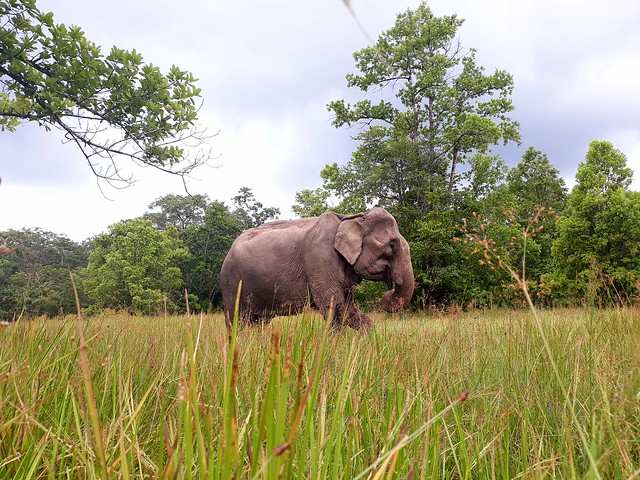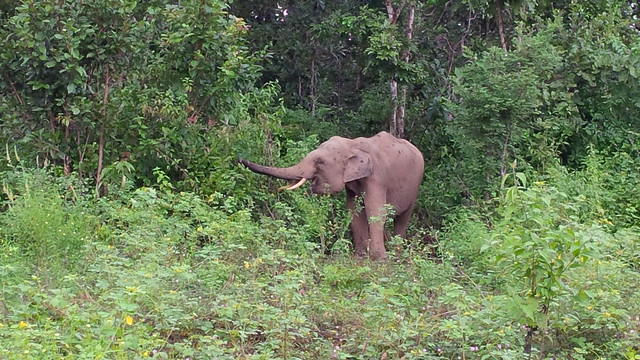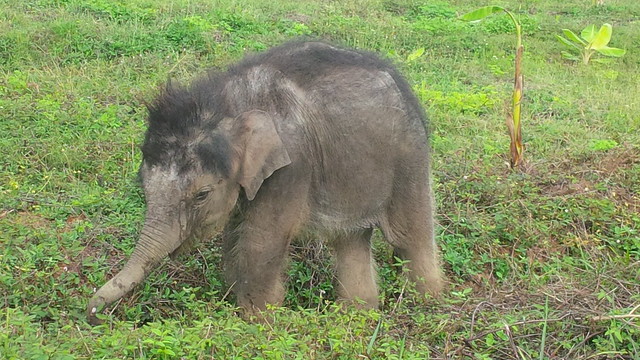Elephant racing festival highlights urgent need for shift to ethical tourism
08 February 2019
As a festival featuring performing elephants in Vietnam approaches, Animals Asia calls on the country to transition to cruelty-free tourism and celebrations.
The Dak Lak province Coffee Festival, due to take place from 9 to 16 March, celebrates the province’s achievements, including its historical connection to elephants, through a series of cultural events.
As part of the celebrations, elephants will be forced to play football, race, swim and take part in tug-of-war for the amusement of locals and visiting tourists.
But with Vietnam struggling to preserve their last remaining populations of wild elephants, Animals Asia has written to the government urging a transition away from exploitation.
Animals Asia’s Animal Welfare Department Manager Nguyen Tam Thanh said:
“We absolutely support the celebration of Dak Lak province’s close cultural connection with elephants, but it is time to put the elephants’ welfare needs at the heart of that relationship.
“Vietnam is struggling to save its last wild populations of elephants and if steps aren’t taken to embrace a culture of respect for them – not as an economic resource to exploit, but as an integral part of the ecosystem – then I’m afraid a vital part of this region’s identity and heritage will die with the last of the species.”
At this year’s event, Animals Asia will host a stand to engage and inform the public about animal welfare as well as the charity’s programmes helping to rescue bears from the bile industry, protect cats and dogs from the meat trade and raise welfare for captive elephants.
According to data from the Vietnam Administration of Forestry, Vietnam’s wild elephant population is believed to have fallen to between 100 and 150, a figure conservationists say is not viable to ensure their survival, while 88 individuals live in captivity, mostly providing rides for tourists in Dak Lak province.
The rapid decline in numbers of wild elephants, from around 2,000 in 1990 to around 100 today, is largely due to loss of habitat as forests are cleared for logging and agriculture. Historically, wild capture for domestication in the tourism industry and poaching for ivory have been exacerbating factors, although poaching has ceased in recent years.
In stark contrast to the model of exploitation prevalent in the tourism industry, in 2018 Animals Asia set up Vietnam’s first ethical elephant tours.
Thanks to funding from Olsen Animal Trust, elephants used for rides in Yok Don National Park are now free to roam the forest with tourists observing them in their natural environment.
The elephants now roaming Yok Don National Park will not take part in the Dak Lak Coffee Festival.
Animals Asia Animal Welfare Director Dave Neale said:
“The model we’ve set up in Yok Don is a win-win: the elephants, the tourist and the mahouts all benefit. If financially successful, we hope this model will be copied across the country and even the Southeast Asia region to completely end the cycle of poor welfare and cruelty prevalent in elephant riding tourism.”
Animals Asia’s letter to government officials cited welfare abuses, public safety, and government regulations against festivals featuring “beating” or “hitting” as key concerns. The charity is yet to receive a response to the request to end the abuse of elephants at the festival.
In a bid to save the last wild populations of elephants, Vietnam set up the Elephant Conservation Centre in 2015. Animals Asia works with the facility to provide veterinary care and standards of welfare high enough to enable breeding and release to help wild populations recover.
Due to low standards of welfare, no captive facility or private owner has successfully bred elephants in Vietnam for over 30 years. The ECC aims to run a free-choice breeding programme for elephants to be released into the wild.
An elephant polo match played annually in Bangkok has been scrapped after public outcry over the event’s inherent animal welfare issues. The event, which raises money for wildlife conservation, this year will feature boat races in ships shaped like elephants and educational art installations instead of live elephants.
BACK






